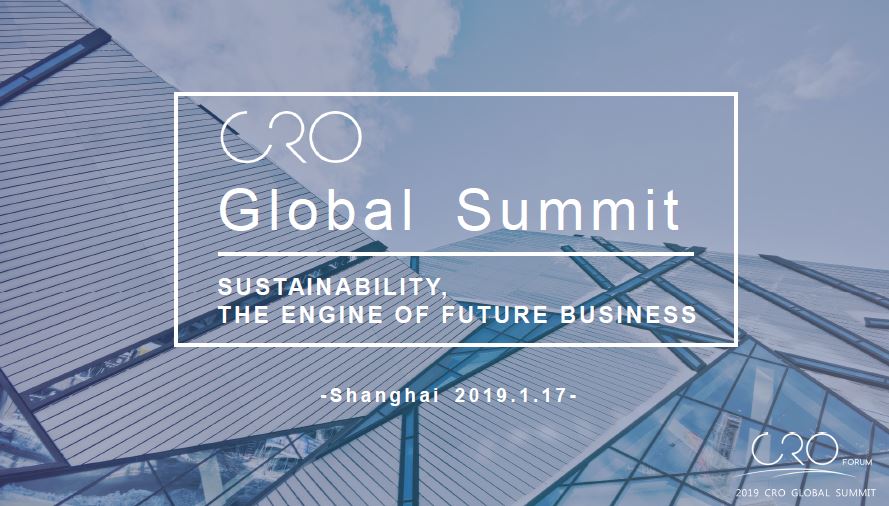Three years ago, CECP came together with its partner organizations around the world and established the Global Exchange as an opportunity to expand corporate impact and develop a shared voice on how companies are a force for good around the world. The spark for these partnerships came about because of Giving Around the Globe research. Currently, the Global Exchange has 16 Country Partners—organizations similar to CECP in their mission to support corporate social responsibility in their countries. These partners regularly meet, share insights on their geographies, assess best practices for serving companies, and collaborate on thought leadership. Multi-national companies need global reach with their CSR strategies, and they seek partners that they can trust. CECP, in partnership with the Global Exchange Country Partners, provides trusted advice and insights to companies so CSR teams and their CEOs have partners around the globe to support their priorities.
CECP’s Global Exchange Country Partner in mainland China and Hong Kong is SynTao. SynTao extended an invitation to me to present at their annual CRO Global Summit on CECP and the important work of many CECP affiliated companies. The CRO (Corporate Responsibility Officer) Global Summit’s theme this year was “Sustainability, the Engine of Future Business,” and was a gathering of large international and domestic companies, international organizations, and network representatives from China and around the world. Along with the audience, I learned of the innovative and impactful programs and initiatives of companies in China. Additionally, Dr. Peiyuan Guo, SynTao’s co-founder and general manager, shared their top trends for China in 2019 which you can find here. I am grateful for their invitation, and I am proud of our relationship with SynTao and the important work that they do with companies in China.
While in China, meeting with many companies and other China corporate responsibility leaders, I learned much about China and how companies are executing their CSR strategies. A few insights:
- China’s larger government initiative focused on achieving CSR goals by 2020 is embedded into the country’s influence and impact on the global economy. Companies should research specific government priorities, such as the poverty alleviation campaign, increasing housing construction, and reducing environmental pollution. There are also various policies, compliance, and disclosures that are critical for companies to understand and discern what is applicable to them.
- Companies in China, just like in other places around the world—whether private, public, or state-owned enterprises (SOE)—need to reach their critical stakeholders. CSR programs help to tell the story of companies’ values, but it may look different in China based on which stakeholders are the most important for specific businesses. From customers to government to capital markets, companies must be relevant in their CSR initiatives.
The United States government shutdown was quite surprising to people, as were geopolitical issues and government relations; non-China headquartered companies’ CSR initiatives are viewed as potential arbiters of bringing countries together. - Depending on the location of a company’s headquarters and satellite offices around the world are based, there can be real struggles to integrate a headquarters-designed CSR plan into the company’s local operations in different countries given local dynamics. How supervisory reporting structures are designed, where decisions are made, how authority and budgets align, how global teams are engaged, how CSR reports are developed and what is included, and how the CEO is briefed—all of these issues are relevant, and companies need to have more of these meaningful discussions between corporate headquarters and their offices around the world. Honesty and transparency will build trust and ultimately deliver better outcomes for companies and communities together.
- Various corporate partners are clear that CSR in China will look and operate differently than in other countries. Companies are encouraged to listen and learn more about what will align and be valued in Chinese society before assuming what worked in another country will work in China. The generous, welcoming, and intelligent CSR professionals that I met in China are all very willing to help non-China headquartered companies. They are optimistic that companies’ investments in China will benefit their entire society.
It is complicated doing business in another country, and CSR initiatives are no different. If your company is seeking a partner on corporate responsibility in China or another country, please let the CECP team know and we are glad to assist with introductions and discussions. Please contact Laura Galindo (lgalindo@cecp.co) for more information.
On a closing note, on May 20th in the U.S., CECP will host our coalition companies’ corporate social engagement teams at one of our 20th Anniversary Receptions as a kickoff to this year’s CECP Summit which has the theme of Integrity & Action: Reshaping the Role of Business. Simultaneously, SynTao will activate their “520” campaign, as May 20th is similar to Valentine’s Day. The Chinese pronunciation for “five two zero” sounds like “I love you.” SynTao is focused on attracting younger generations to the Sustainable Development Goals (SDGs) through their outreach, and we encourage you to connect with them. We will have a lot to celebrate in May, and wherever you are in the world, we know that you will continue your commitment to social impact.


